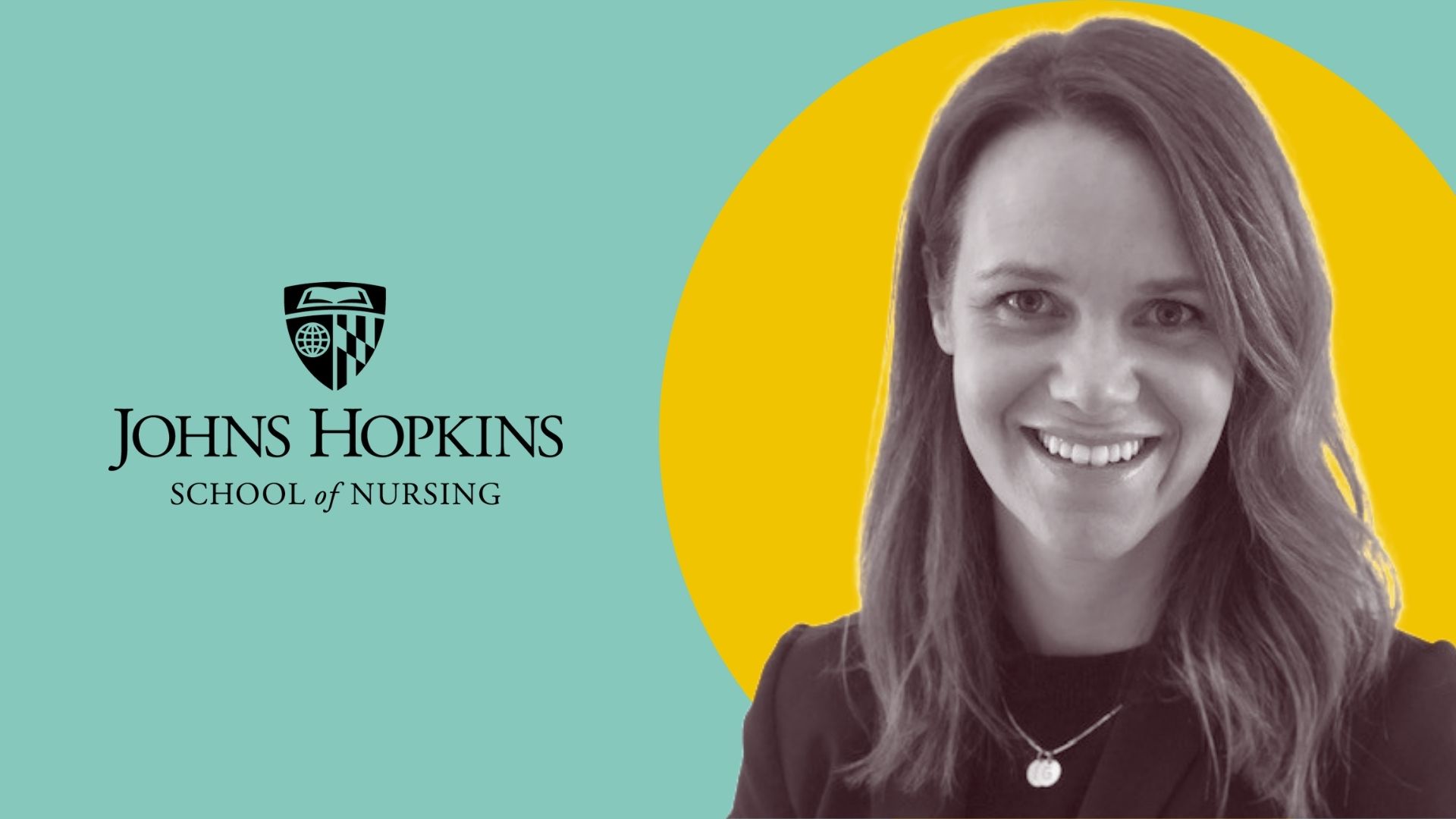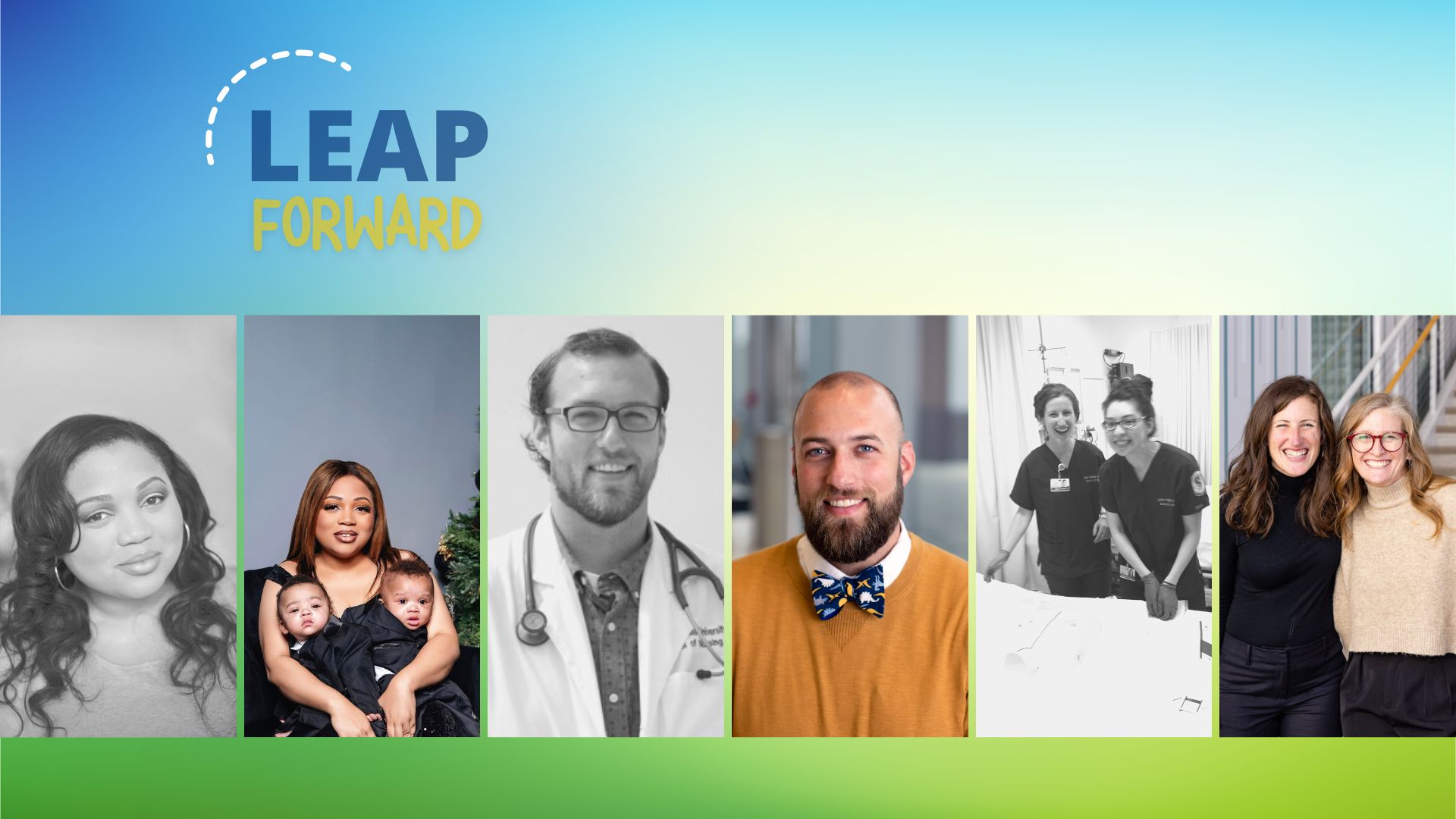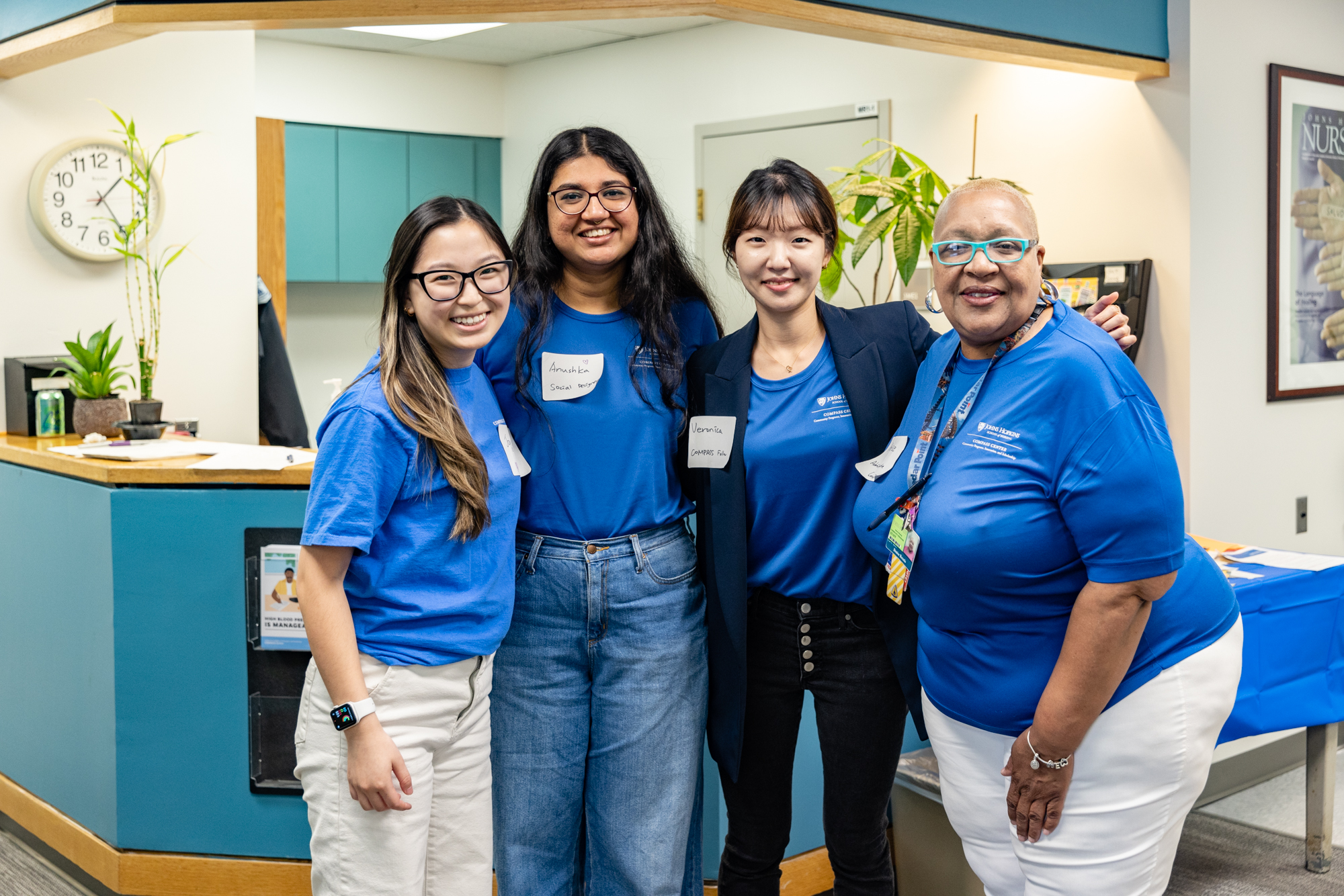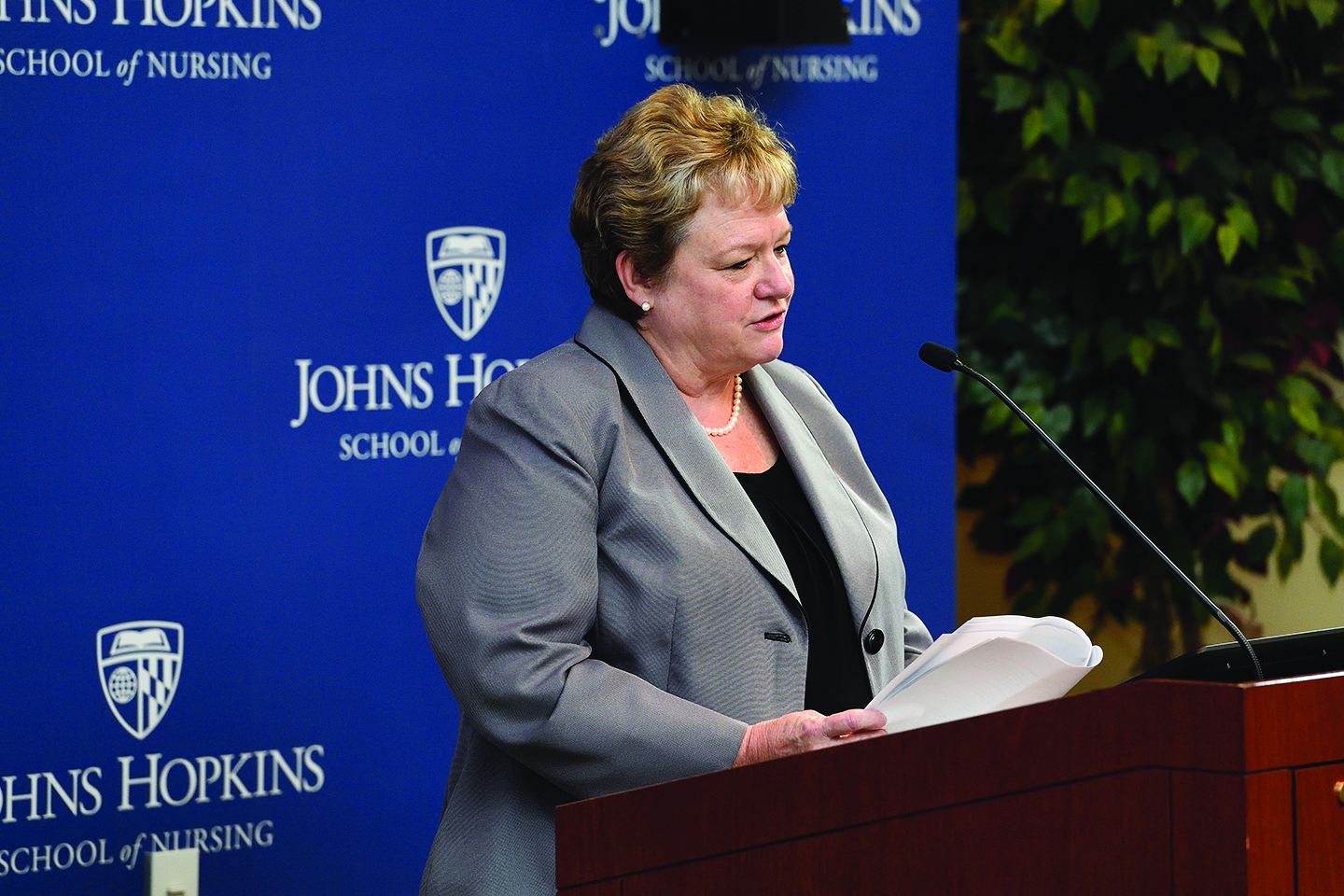“I love being a part of an organization that provides access to free, language-congruent, quality health care to a population who often has nowhere else to turn.”
Today, Katie Phillips is medical director for the Esperanza Center Health Clinic of Baltimore. Funded by Catholic Charities, the center is a comprehensive resource center whose mission is to welcome immigrants by offering hope, compassionate services, and the power to improve their lives.
Phillips earned her BSN (2010) from the Johns Hopkins School of Nursing and MSN/MPH to become a family nurse practitioner (2012) in a previously offered dual degree program with the Johns Hopkins Bloomberg School of Public Health (the program is now a DNP/MPH).
In a short Q&A Phillips talks about her non-traditional nursing role as medical director of a community health clinic dedicated to serving undocumented immigrants.
What do you do?
I am a board-certified family nurse practitioner and the medical director of the Esperanza Center Health Clinic. We provide free primary medical care and dental care to the immigrant community of greater Baltimore.
As medical director, I provide direct patient care and also oversee quality assurance, budgets and grants, as well as hiring and supervision of our staff. I love the balance of providing direct patient care, with other administrative and leadership responsibilities. No two days are the same, which always keeps things interesting—and keeps me growing and learning!
What is the Esperanza Center, what needs does it serve, and what makes you most excited about being a part of this work?
The Esperanza Center Health Clinic is a free primary care clinic that serves the undocumented immigrant community. All of our patients are uninsured and have limited English proficiency. We provide free primary care (as well as some limited on-site specialty care, including neurology and psychiatry), and free dental care to our patients.
I am excited to explore how we can help our patients address the social determinants of their health outside the walls of the clinic—out in the community, meeting them where they are.
I love being a part of an organization that provides access to free, language-congruent, quality health care to a population who often has nowhere else to turn for health care. Many of our staff are immigrants themselves and being a part of a team that provides quality care while treating our patients with dignity and respect is such a privilege. I am excited to explore how we can continue to grow beyond direct medical care to help our patients address the social determinants of their health and to continue our work outside the walls of the clinic—out in the community, meeting patients where they are.
What is your vision for the future of nursing?
I believe that an increased focus on population health will occur over the next several years (and really has already begun!). Nurses work in every part of the health care system—not just in the hospital – and our perspective can help position nurses as leaders in population health.
I hope to see nurse leaders working at hospital, local, state and national levels to reduce health disparities and inequities and improve the health of our communities.


 Leap Forward: Where are They Now
Leap Forward: Where are They Now Awards for Diversity
Awards for Diversity Wald Center Returns to Lead Community Care
Wald Center Returns to Lead Community Care JHSON Highlights
JHSON Highlights A Letter from Deborah Baker: The Role of Your Career, Right Here
A Letter from Deborah Baker: The Role of Your Career, Right Here







